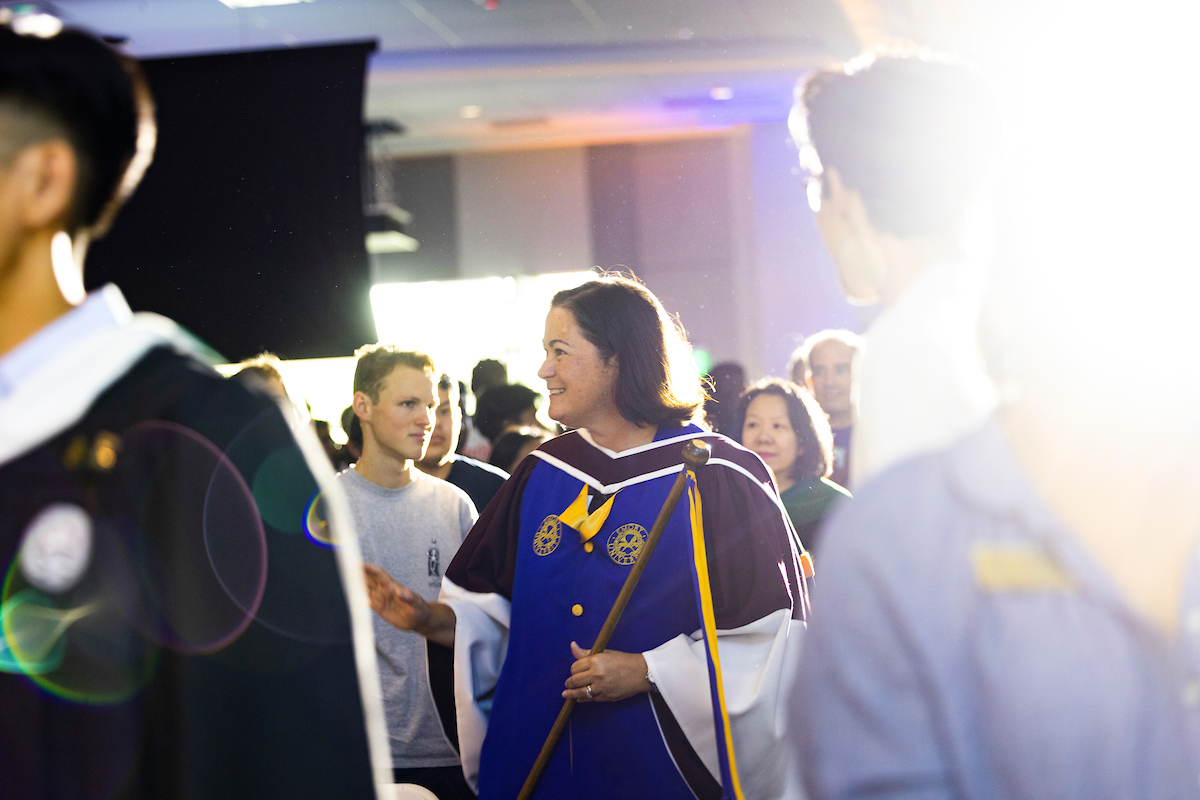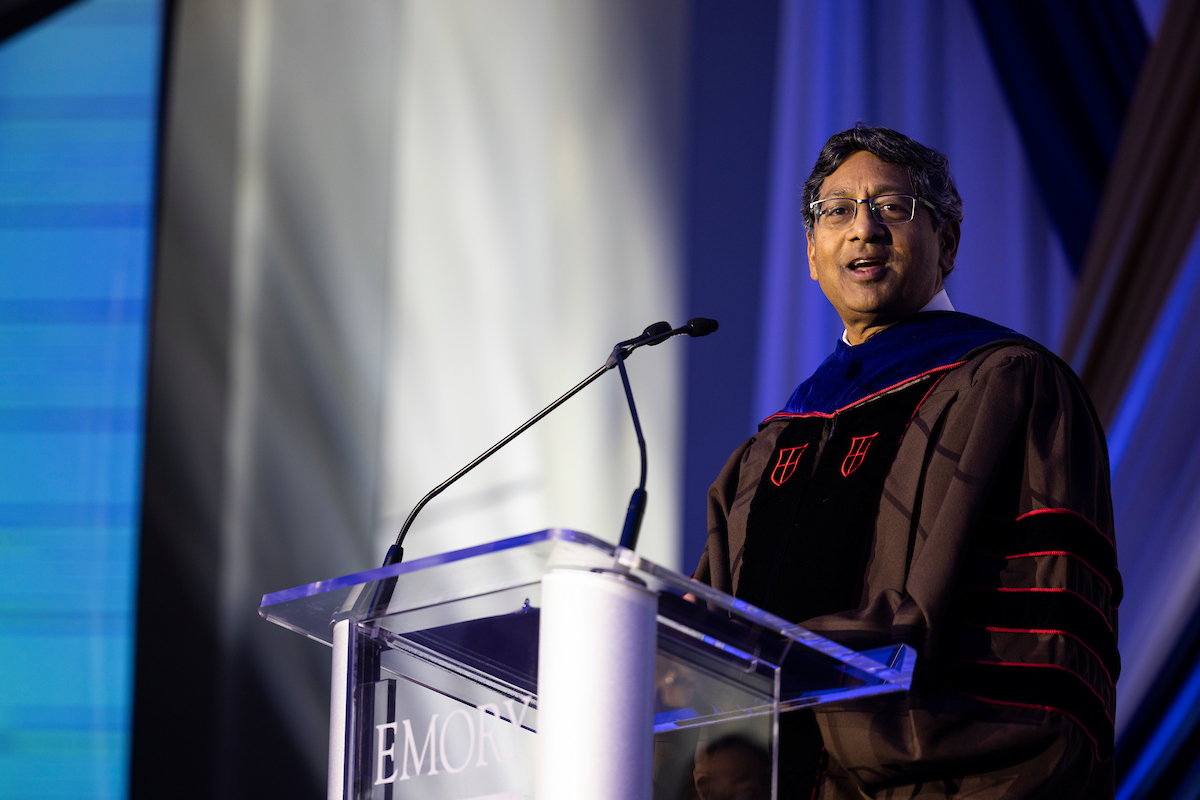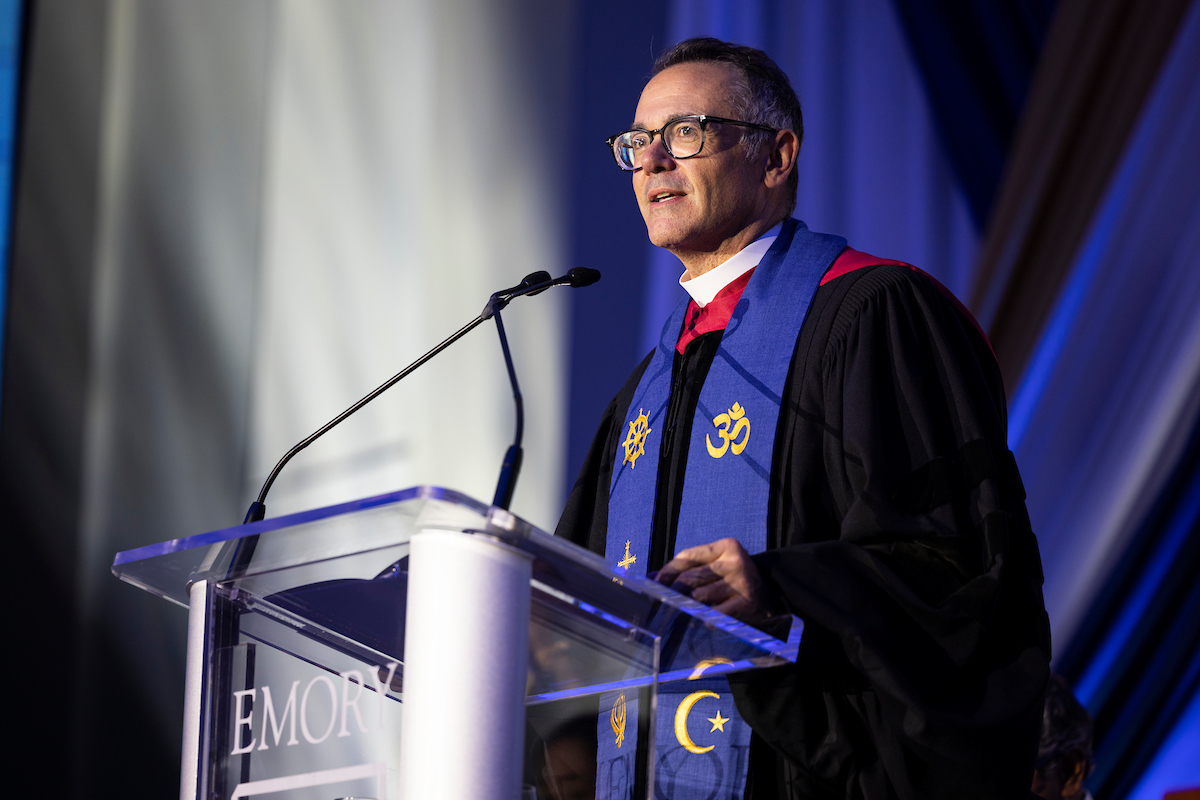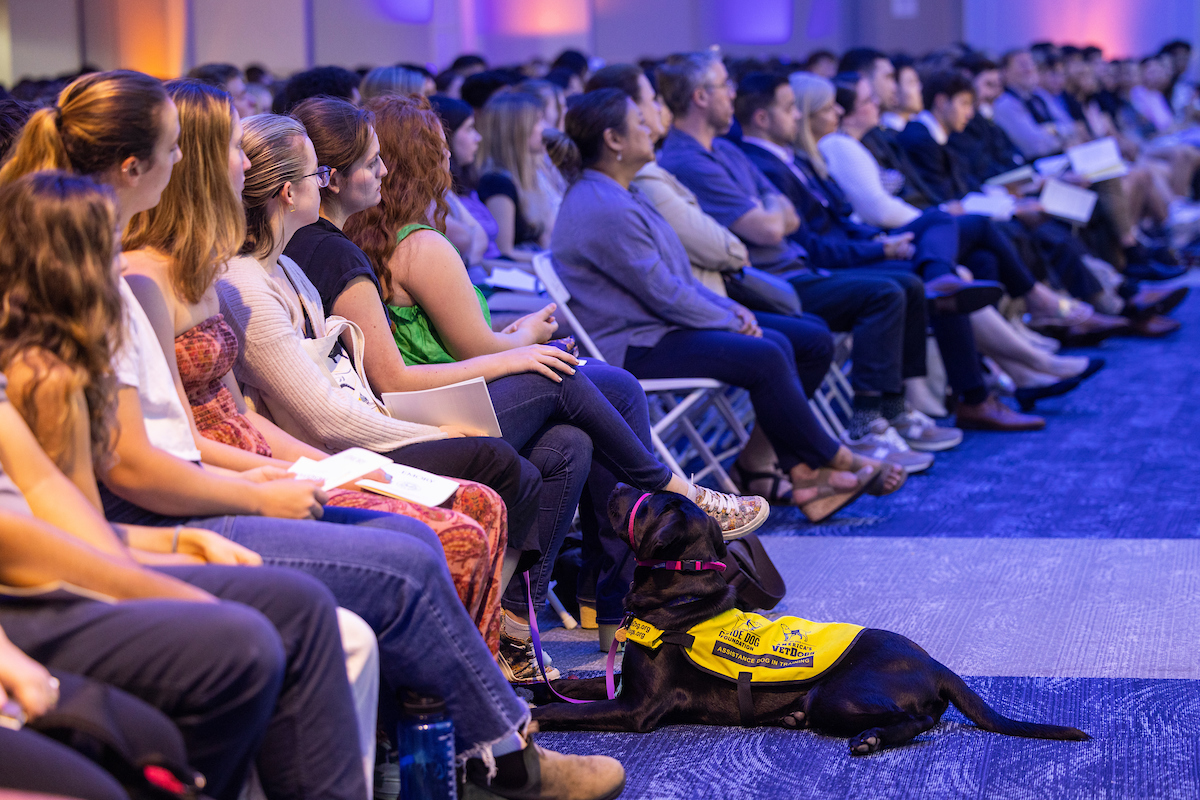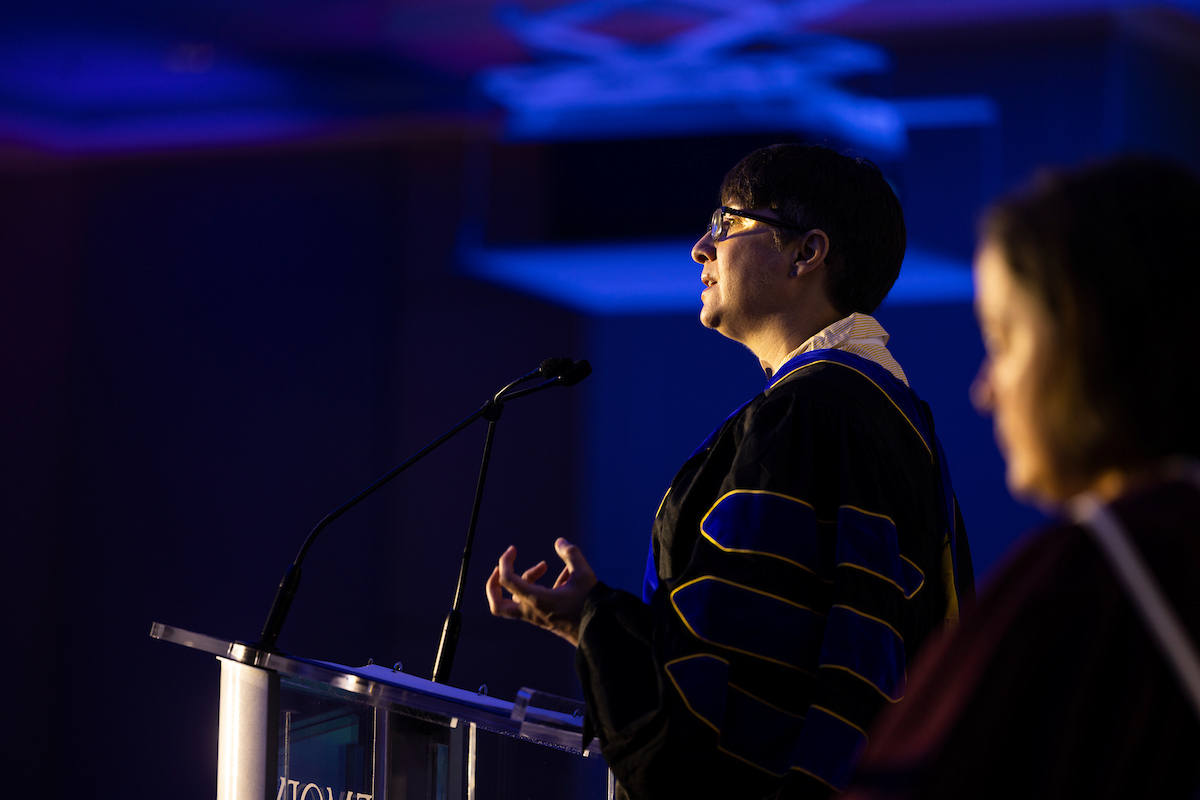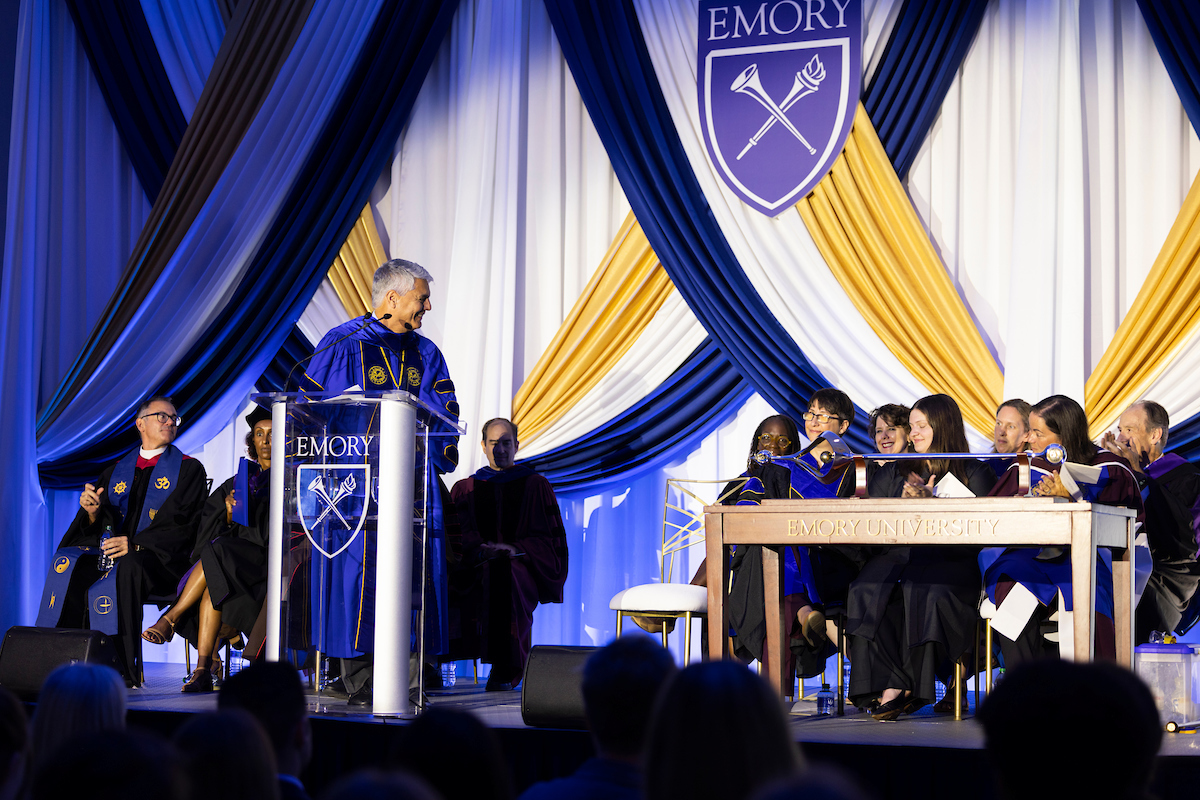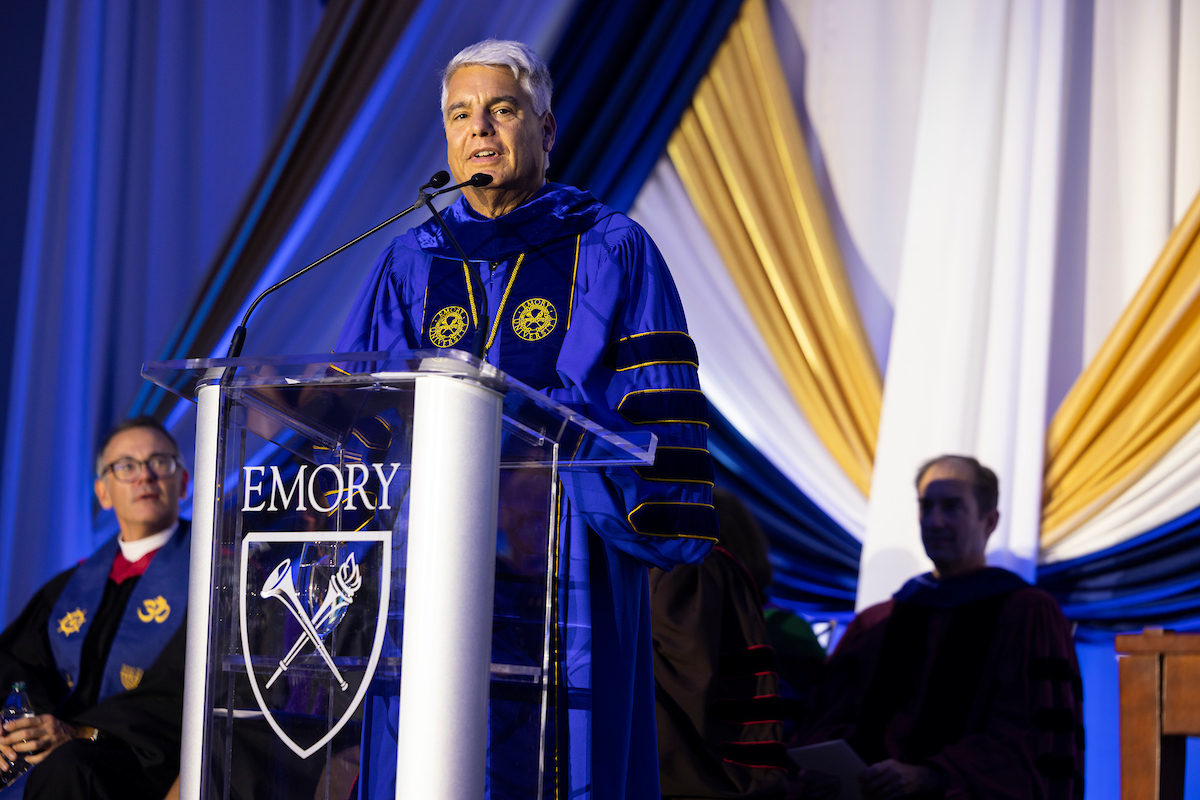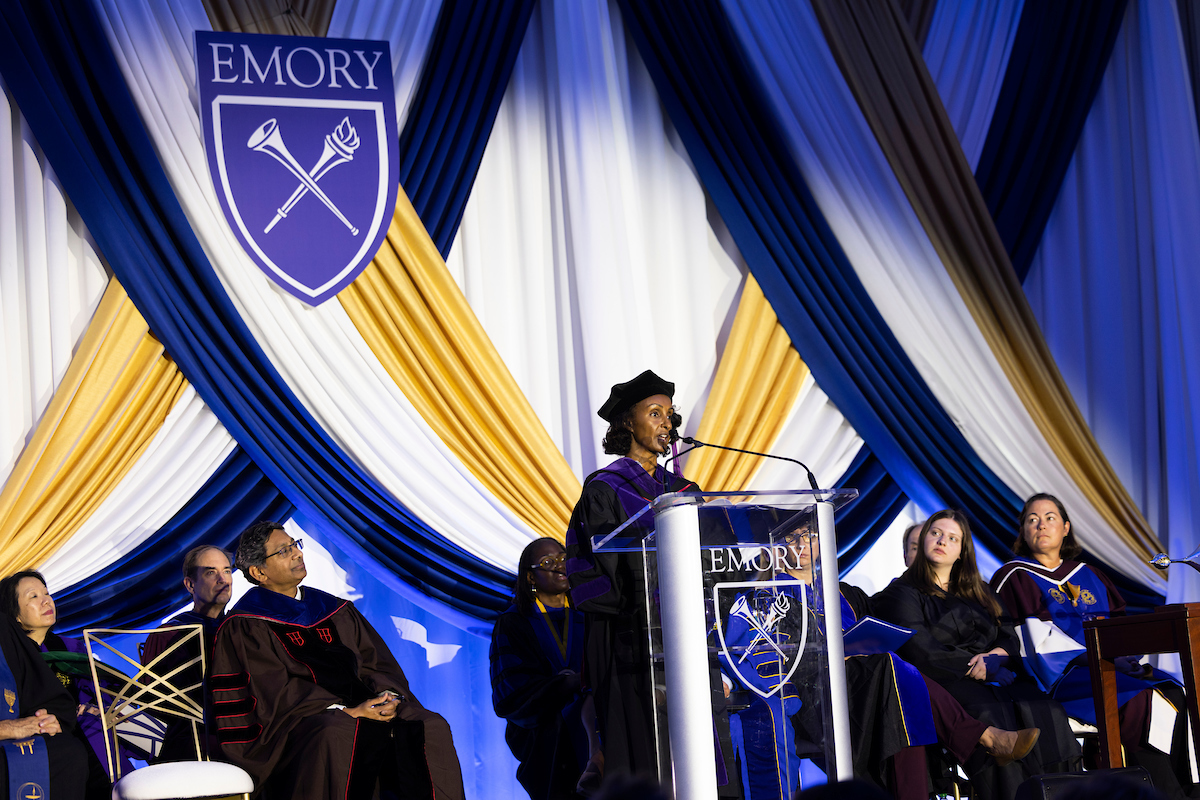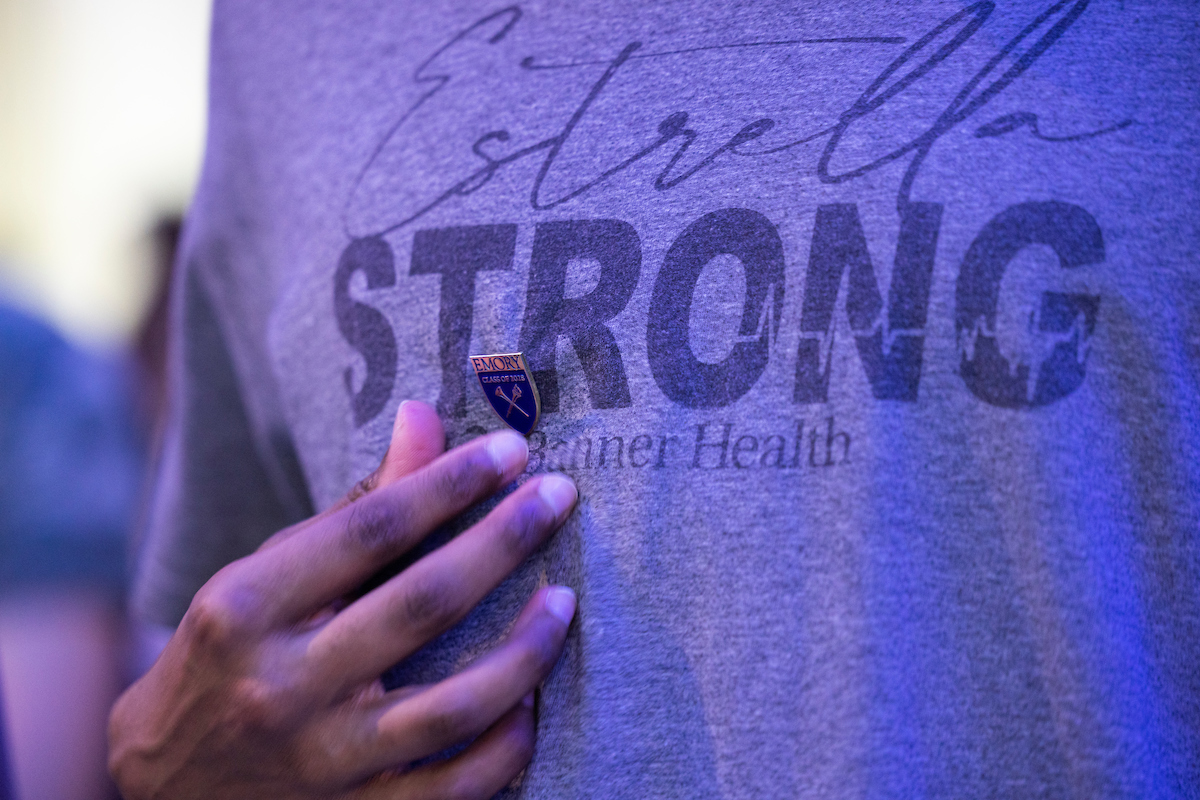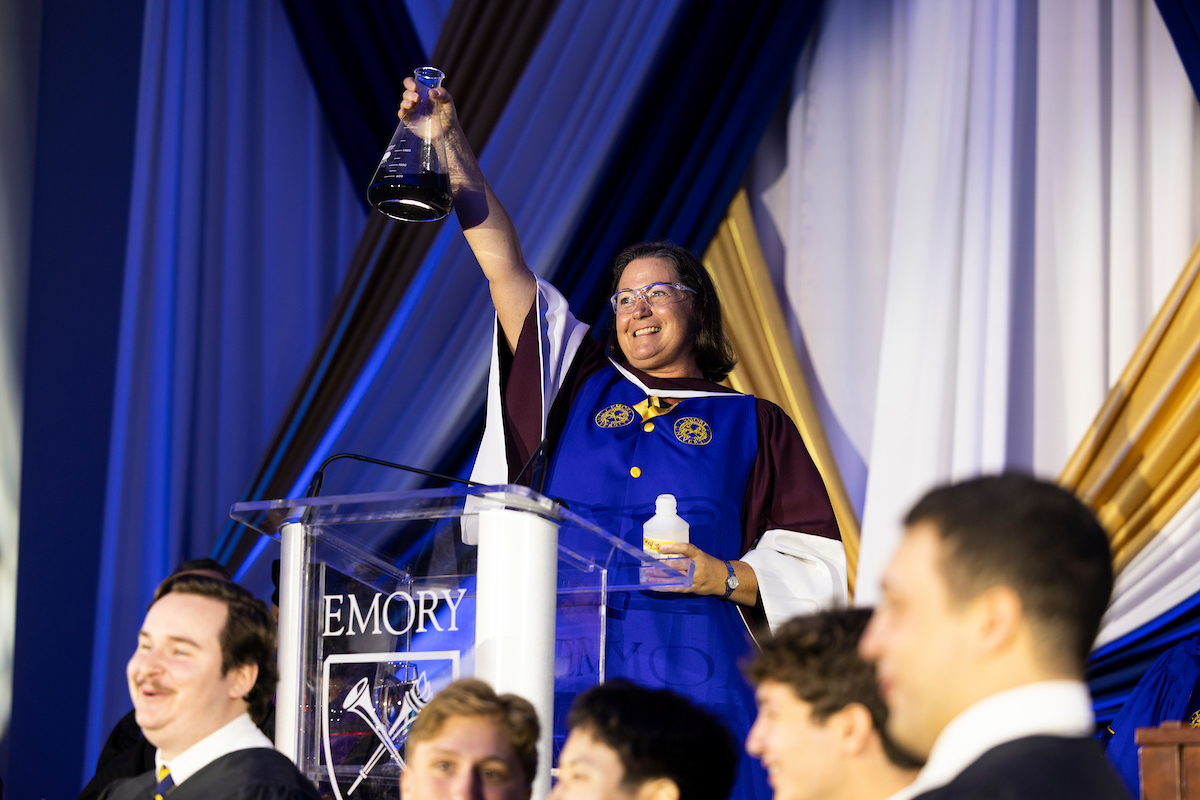Shoulder to shoulder with new friends and classmates, first-year students gathered with faculty and university leaders Aug. 27 to ring in the academic year at the 2024 Emory Convocation.
The ceremony marked a formal welcome for the Emory College Class of 2028, who spent the previous days moving into residence halls and participating in university traditions such as the Gate Crossing and Coca-Cola Toast. They convened in the student center not only to celebrate their first days on campus, but to consider and be inspired by the opportunities for personal and academic discovery ahead.
“Whatever you are interested in, you can get it started right here at Emory,” President Gregory L. Fenves assured students, whether it’s “composing an extraordinary piece of music or writing that book you have in your head; whether it’s launching a new business or learning to serve communities in Atlanta and around the country and world.”
Emory students, Fenves said, are those “who invent, who create, who publish, who get in on the ground floor of life-saving research.”
In addition to Fenves, Provost Ravi V. Bellamkonda and University Chaplain and Dean of Religious Life Gregory W. McGonigle welcomed students to the new year. Christina Gavegnano 12G — assistant professor in the Emory School of Medicine and the Emory College Center for the Study of Human Health — delivered the faculty address.
Oxford College held Convocation on its historic grounds the following day, Aug. 28. Candler School of Theology held its Convocation on Aug. 29.
Traditions old and new
A ceremony of time-honored traditions, Emory Convocation began with representatives from each of the university’s nine schools processing in academic regalia to the skirl of bagpipes, the bedel carrying the university mace. To close the ceremony, student a cappella group No Strings Attached sang the alma mater alongside “The Chemistry of Gold and Blue.”
This year, a new tradition was introduced, with students receiving welcome pins emblazoned with the Emory shield and their class year.
Enku Gelaye, senior vice president and dean of campus life, spoke to the shield’s symbolic significance as students fastened the pins to their shirts.
“The torch illuminates the darkness,” Gelaye said. “Let [it] signify your ignited curiosity, and we encourage you to tend the flame.”
“The second item is a trumpet amplifying our voices,” she continued, charging students to share their “support for peers and celebrate each other’s experiences, accomplishments and passions.”
Taking a leap of faith
Bellamkonda’s opening remarks reminded students they are at the beginning of a journey with “unlimited opportunities” — and that their passions will chart the course of the university.
“Convocation is an entry point,” he said. “It serves as a threshold to commit to the great work ahead and to commit to the community that will help you along the way. I encourage you to take a leap of faith today to commit to the belief that you belong here. This is your university to shape.”
He added that this belief will help them in all aspects of their Emory experience and “will open the door to friendship, scholarship and connection.” It will also fortify them for the difficult times they are sure to face, he said, “because things worth doing are often challenging.”
While he encouraged students to try new things, Bellamkonda also recommended once they find their passions to “go deep” and to make strong connections with faculty mentors and fellow students. These peers, he said, “will inspire you with their talent, curiosity and great-heartedness — and be inspired by you in return.”
In a similar spirit, McGonigle’s invocation emphasized the importance of new opportunities and a strong, caring community.
“Bless these students that they may find joy in learning, resilience in challenges and support from each other,” he said. “Open their minds to new ideas and their hearts to new friendships. May their studies lead them to a deeper sense of purpose and meaning.”
Finding your “a-ha” moment
For Christina Gavegnano, that drive to find “purpose and meaning” is at the heart of an Emory education — and was a major theme of her faculty address.
As the director of the Emory-based Gavegnano Drug Discovery Program, she has led the way on two major medical achievements over the last five years: a potential HIV-1 cure and a first-line treatment for COVID-19 that has now been used in more than 3 million patients worldwide.
But she didn’t always know what she wanted to do or that success was around the corner.
“Here at the beginning, it may seem daunting thinking about life’s purpose,” she said. “I know that feeling. I was that person at one point in time.”
Then came Nov. 4, 2010. That’s the date Gavegnano had what she called her “a-ha moment,” when as an Emory PhD student she first made the connection that a certain kind of drug called a JAK inhibitor could be used against HIV.
That day, she sent an email to a professor with the subject line “HIV Eradication Idea.” Nearly 15 years later, it’s the foundation for a drug showing great promise as an HIV-1 cure.
“These are the kinds of experiences you’ll find here at Emory,” she said. “And we hope that you find your a-ha moment. You’re going to find your a-ha moment — where you think, ‘this is what I want to do with my life’ … I want you to foster it. I want you to grow it.”
If that sounds scary, she understands. But she also assured students there are faculty committed to their flourishing and resources designed to help them along the way — such as the Emory Purpose Project, an initiative she supported throughout her address.
“I want you to know that when you are here, you are not alone,” she said. “You might feel alone at times, but there are plenty of people like me to help you, who will help you find the path and help you flourish — and help you find the purpose that brings you happiness and peace. To the Class of 2028, officially I welcome you.”
Emory and the bees
“This is Emory,” Fenves said following Gavegnano’s address. “This is what Emory is about, and you are now part of it.”
Here, he continued, students have the resources to not only find but cultivate their passions. He shared the example of Mikaila Ulmer 26C, whose 2020 book “Bee Fearless: Dream Like a Kid” charts how she turned a small lemonade stand into the nationwide brand Me and the Bees Lemonade.
“This is your chance to challenge yourself, to pursue your goal, to find out what’s possible for you,” he said. “This is your time, and I know each of you is going to make tremendous use of all the opportunity you have here at Emory. You have the talent, you have the ability and you have the drive to flourish here, and I know that you will do that.”
Photos by Kay Hinton, Emory Photo/Video.

